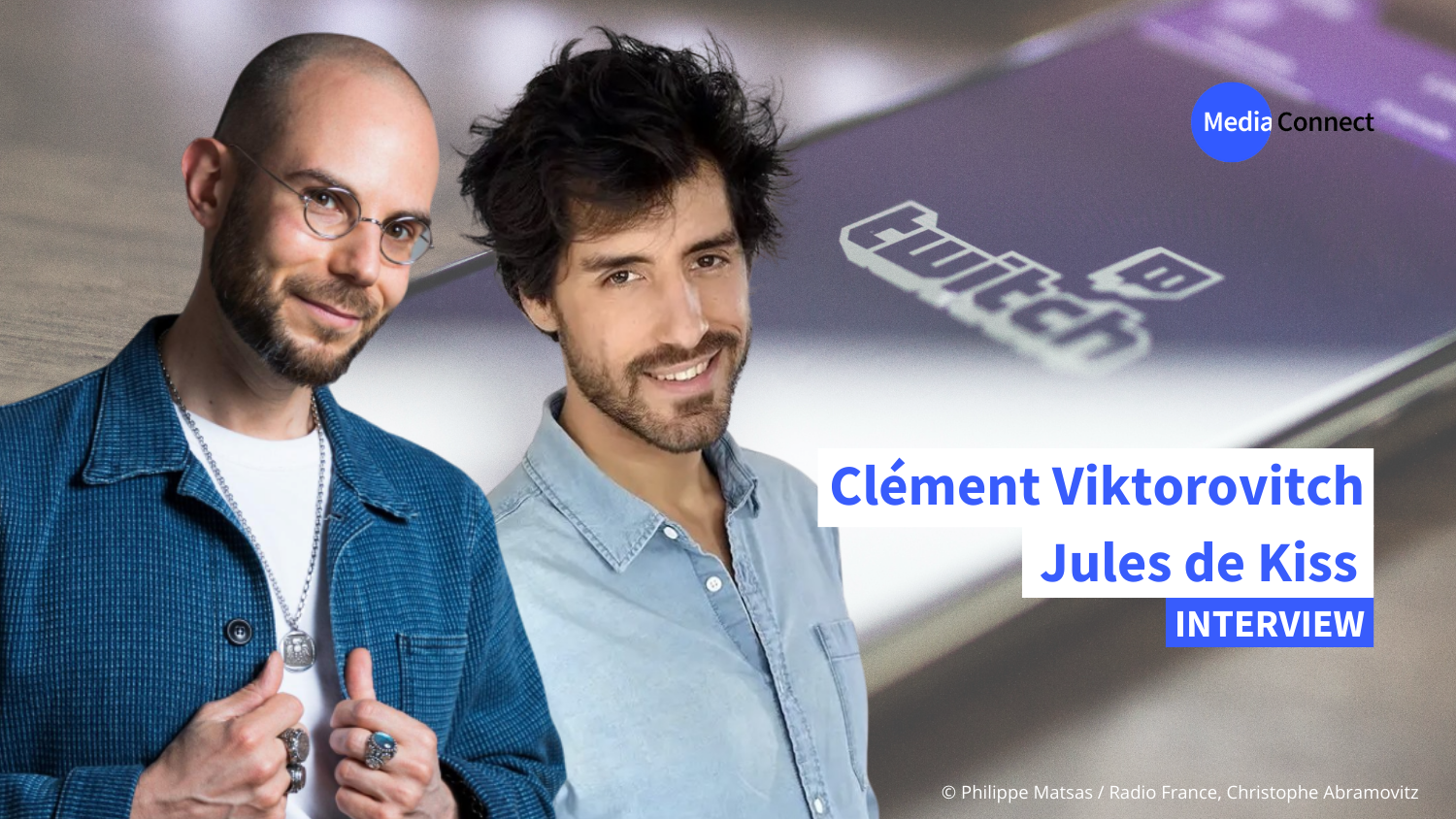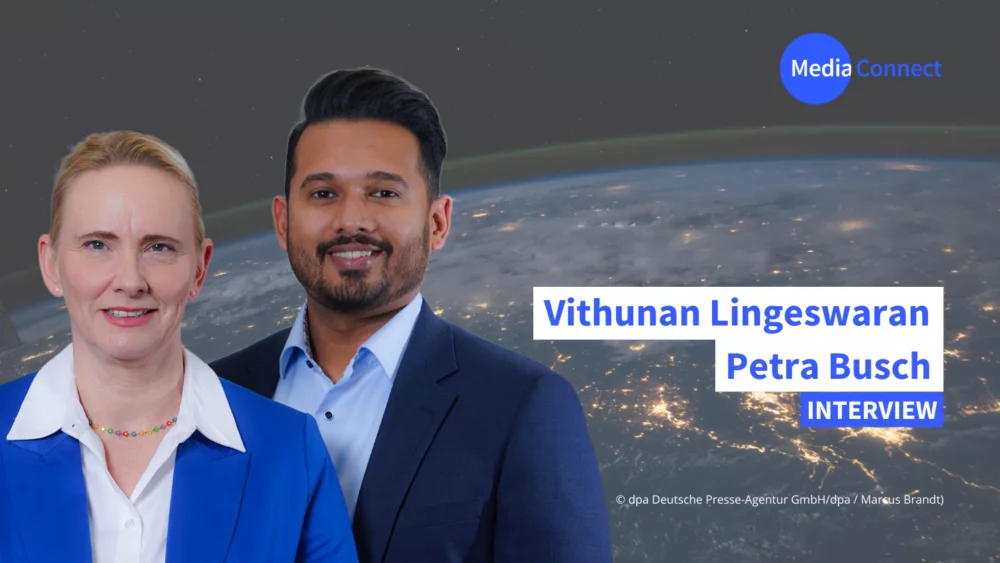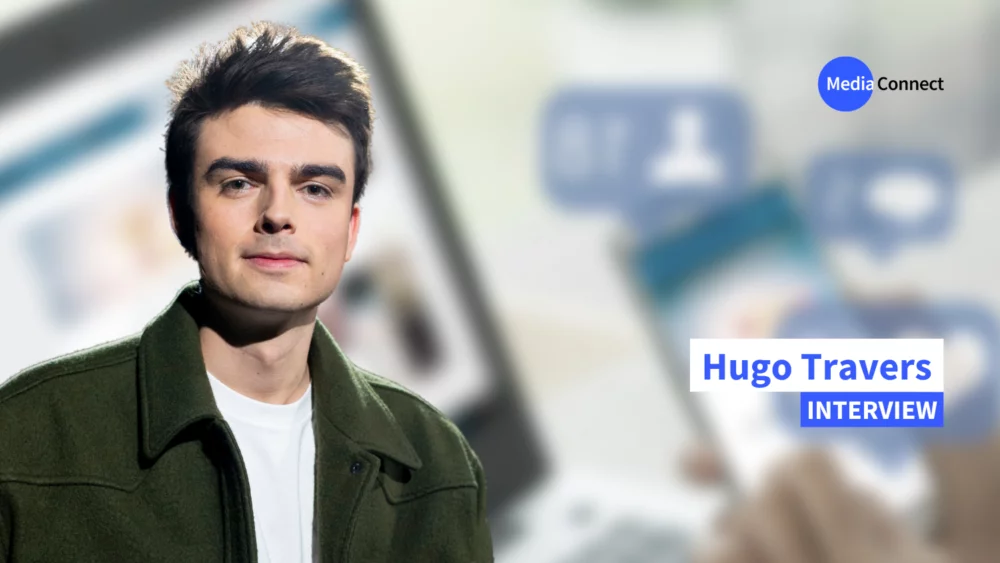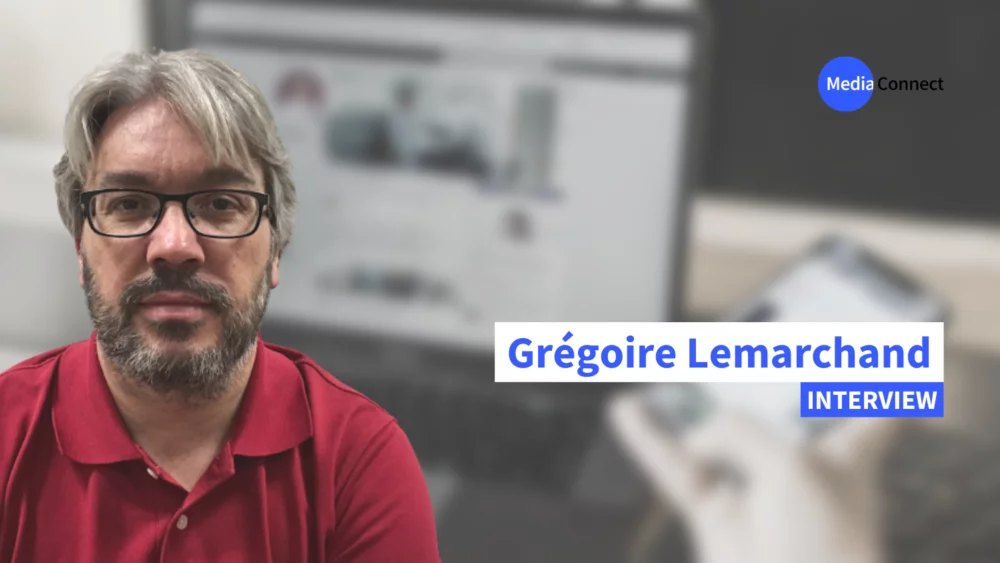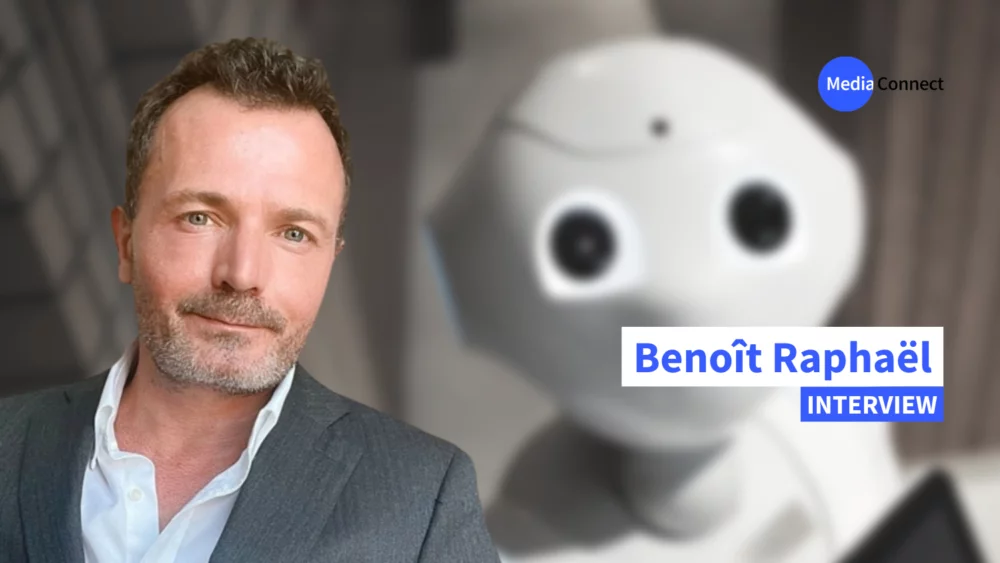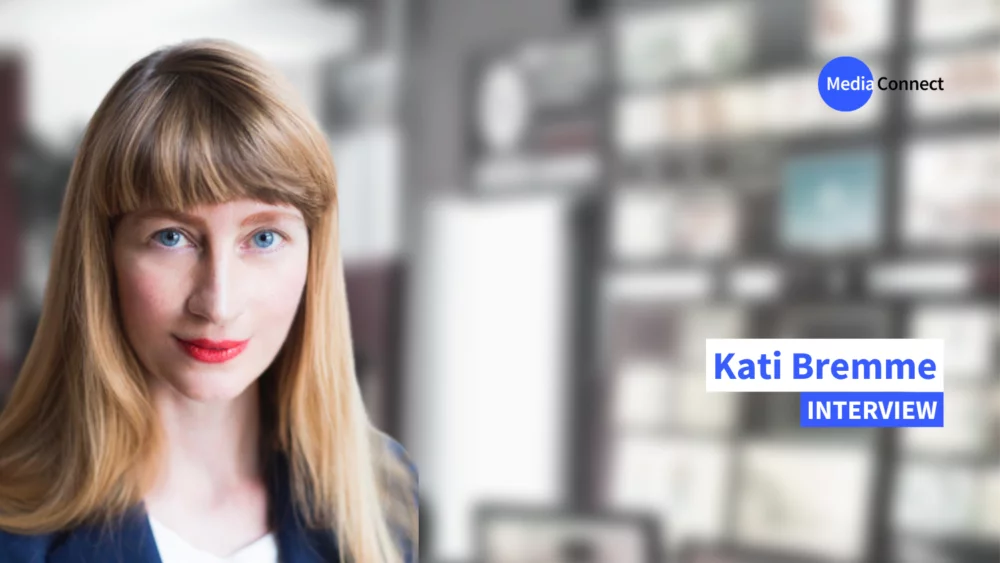Jules, as a journalist and presenter at franceinfo, you also host a segment dedicated to e-sports. Is this what led you to join Twitch?
Jules de Kiss: It's actually the other way around! At franceinfo, I've been a weekend presenter for the 10-14 slot for several years, and indeed, we have a segment on e-sports. But I've known Twitch for much longer, since the very beginnings of the platform, to be honest. Not as a streamer, but as a viewer. So, I've been around there for about 13 years now, long before I became a journalist.
I've always loved video games, especially e-sports. Since it's a significant phenomenon, especially in France, I had been telling them for a while that it was worth paying attention to. Franceinfo launched an e-sports segment in 2021. But all of this isn't directly related to franceinfo's presence on Twitch.
Clément, you're a professor, author, streamer, and Sunday columnist on franceinfo. On Twitch, you discuss current affairs, politics, and rhetoric. Why did you choose this platform to discuss these topics?
Clément Viktorovitch: My journey with the platform is quite similar to Jules'. I was first a viewer on Twitch before becoming a streamer, and I was also there at the platform's beginnings. In 2011-2012, I was finishing my thesis, and when I got home in the evenings, I didn't feel like opening a book. I mostly needed something comforting. That's when I discovered video game streamers.
For years, I wondered how I could also start streaming, but I didn't have the legitimacy to enter the gaming niche, which was still the main type of content on Twitch at the time.
Then the platform evolved. In France, we saw talk shows arrive, like Popcorn, and we also saw politics, with Jean Massiet. At that moment, I thought maybe it was time for me to try to bring in what I was competent in; that is, discourse analysis and more generally, the love of words. I've always had this deep desire to democratize knowledge, to be a knowledge facilitator.
What prompted franceinfo to turn to Twitch?
J.D.K: It's true that the average age of franceinfo listeners is very different from the audience you find on Twitch. In a caricatured way, those under 30 don't listen to the radio. And even though franceinfo has been performing well in terms of audience ratings for several years, it must be said that the radio media as a whole is losing listeners constantly. Today, for this audience, the reflexes for getting information are turned to other platforms.
However, part of franceinfo's mission as a public service media is to address all populations. Especially in a context of lack of trust in information, which is itself a permanent challenge. Faced with this observation, we are therefore obliged to adapt.
How do you perceive the presence of media on Twitch?
C.V: Most of the time, when a media outlet tries to enter Twitch, it's quite laborious. It's difficult because on this platform, a significant portion of viewers come looking for something specific; namely, comfort. The idea that, once at home, you want to unwind. And it's much more comforting to do so on Twitch than on continuous news channels or somewhat frenetic TV shows. And this very identity of the platform makes it very difficult for a media outlet to establish itself there.
Additionally, Twitch tolerates very little highly editorialized, heavily edited, or refined content. It's also not fond of short content; it requires long-form and personable content.
J.D.K: On the question of seeking comfort on Twitch, I'll add that Jean-Philippe Baille, director of franceinfo, has repeatedly said - and I find this very accurate - that Twitch today is somewhat equivalent to the call-in shows of radio in the past. When we opened the airwaves to listeners, they could call in, discuss their life issues, and others would react to what they had just heard. A concept that has faded and remains very difficult to sustain in news today. Hence the interest in Twitch.
How does franceinfo adapt its content to address the Twitch audience? And does aligning with Twitch's codes not expose your media to producing "less journalistic" content than on its radio broadcast?
J.D.K: No, I don't think so, and that's not the goal. The idea is precisely to bring the same journalistic standards but to share them differently, with more interactions, in a different kind of closeness. Whether we present "Le Talk," the Twitch show of franceinfo, or a radio broadcast, it's the same thing: we're here to showcase all the work of the editorial team, all its know-how, with all the necessary rigor. It's the embodiments, the setting, the relationship with the audience, and the topics covered that may change. But I wouldn't say that all of this is less journalistic.
In 2022, franceinfo launched "Game of Roles" on Twitch, a political role-playing game in the context of the last presidential campaign. What were your objectives?
J.D.K: When Clément and the streamer FibreTigre proposed this political role-playing game, it not only fit into the framework of the presidential elections but also aimed to attract a young audience. A audience that largely turns away from politics, votes little, and often does not adhere to the media's treatment of politics. So we thought there was something interesting to do, something really new. And for the channel, it was also a way to get to know Twitch and its audience better, and vice versa.
How do you see the future of media on Twitch? Are there any trends or developments to expect, in your opinion?
C.V: I've had a conviction for a long time: in the distrust that has arisen between some citizens and the media, part of this distrust comes from the fact that citizens don't know, and it's quite normal, the constraints that journalists face.
As listeners, we see a 4-minute piece, a 2-hour news segment, a 2.5-hour show in the evening, a talk show or a 1.5-hour debate show. What we don't think about are the conditions in which these pieces were produced. Perhaps they were made under production constraints, which sometimes explain certain choices.
So, I am convinced that this trust, to be rebuilt, will pass through simply explaining what producing news entails and the fact that sometimes there are mistakes because you have to work very quickly, that errors are human.
For example, when guest choices are criticized, these listeners and viewers don't necessarily know how many people were called before. Similarly, they are not aware of the need to balance many factors on the set: respecting a crucial gender balance, a balance between generations, a political balance, and at the same time, having genuine expertise. There are many constraints on the media that people are not aware of.
A format that would be interesting from both a journalistic and even democratic point of view, in reality, would be to have a moment of accountability, in the Anglo-Saxon sense of the term. franceinfo develops this on the platform and also does it in schools and forums. As a media outlet, we must continually innovate and adapt, follow the aspirations of society, in both formats and the substantive topics to be addressed. It's a constant job, and there's obviously a lot to do.
Interview by Manon OTTOU-GUILBAUD
Also read on the subject: How has Twitch become the new playground for the media?
Jules de Kiss: It's actually the other way around! At franceinfo, I've been a weekend presenter for the 10-14 slot for several years, and indeed, we have a segment on e-sports. But I've known Twitch for much longer, since the very beginnings of the platform, to be honest. Not as a streamer, but as a viewer. So, I've been around there for about 13 years now, long before I became a journalist.
I've always loved video games, especially e-sports. Since it's a significant phenomenon, especially in France, I had been telling them for a while that it was worth paying attention to. Franceinfo launched an e-sports segment in 2021. But all of this isn't directly related to franceinfo's presence on Twitch.
Clément, you're a professor, author, streamer, and Sunday columnist on franceinfo. On Twitch, you discuss current affairs, politics, and rhetoric. Why did you choose this platform to discuss these topics?
Clément Viktorovitch: My journey with the platform is quite similar to Jules'. I was first a viewer on Twitch before becoming a streamer, and I was also there at the platform's beginnings. In 2011-2012, I was finishing my thesis, and when I got home in the evenings, I didn't feel like opening a book. I mostly needed something comforting. That's when I discovered video game streamers.
For years, I wondered how I could also start streaming, but I didn't have the legitimacy to enter the gaming niche, which was still the main type of content on Twitch at the time.
Then the platform evolved. In France, we saw talk shows arrive, like Popcorn, and we also saw politics, with Jean Massiet. At that moment, I thought maybe it was time for me to try to bring in what I was competent in; that is, discourse analysis and more generally, the love of words. I've always had this deep desire to democratize knowledge, to be a knowledge facilitator.
What prompted franceinfo to turn to Twitch?
J.D.K: It's true that the average age of franceinfo listeners is very different from the audience you find on Twitch. In a caricatured way, those under 30 don't listen to the radio. And even though franceinfo has been performing well in terms of audience ratings for several years, it must be said that the radio media as a whole is losing listeners constantly. Today, for this audience, the reflexes for getting information are turned to other platforms.
However, part of franceinfo's mission as a public service media is to address all populations. Especially in a context of lack of trust in information, which is itself a permanent challenge. Faced with this observation, we are therefore obliged to adapt.
How do you perceive the presence of media on Twitch?
C.V: Most of the time, when a media outlet tries to enter Twitch, it's quite laborious. It's difficult because on this platform, a significant portion of viewers come looking for something specific; namely, comfort. The idea that, once at home, you want to unwind. And it's much more comforting to do so on Twitch than on continuous news channels or somewhat frenetic TV shows. And this very identity of the platform makes it very difficult for a media outlet to establish itself there.
Additionally, Twitch tolerates very little highly editorialized, heavily edited, or refined content. It's also not fond of short content; it requires long-form and personable content.
J.D.K: On the question of seeking comfort on Twitch, I'll add that Jean-Philippe Baille, director of franceinfo, has repeatedly said - and I find this very accurate - that Twitch today is somewhat equivalent to the call-in shows of radio in the past. When we opened the airwaves to listeners, they could call in, discuss their life issues, and others would react to what they had just heard. A concept that has faded and remains very difficult to sustain in news today. Hence the interest in Twitch.
How does franceinfo adapt its content to address the Twitch audience? And does aligning with Twitch's codes not expose your media to producing "less journalistic" content than on its radio broadcast?
J.D.K: No, I don't think so, and that's not the goal. The idea is precisely to bring the same journalistic standards but to share them differently, with more interactions, in a different kind of closeness. Whether we present "Le Talk," the Twitch show of franceinfo, or a radio broadcast, it's the same thing: we're here to showcase all the work of the editorial team, all its know-how, with all the necessary rigor. It's the embodiments, the setting, the relationship with the audience, and the topics covered that may change. But I wouldn't say that all of this is less journalistic.
In 2022, franceinfo launched "Game of Roles" on Twitch, a political role-playing game in the context of the last presidential campaign. What were your objectives?
J.D.K: When Clément and the streamer FibreTigre proposed this political role-playing game, it not only fit into the framework of the presidential elections but also aimed to attract a young audience. A audience that largely turns away from politics, votes little, and often does not adhere to the media's treatment of politics. So we thought there was something interesting to do, something really new. And for the channel, it was also a way to get to know Twitch and its audience better, and vice versa.
How do you see the future of media on Twitch? Are there any trends or developments to expect, in your opinion?
C.V: I've had a conviction for a long time: in the distrust that has arisen between some citizens and the media, part of this distrust comes from the fact that citizens don't know, and it's quite normal, the constraints that journalists face.
As listeners, we see a 4-minute piece, a 2-hour news segment, a 2.5-hour show in the evening, a talk show or a 1.5-hour debate show. What we don't think about are the conditions in which these pieces were produced. Perhaps they were made under production constraints, which sometimes explain certain choices.
So, I am convinced that this trust, to be rebuilt, will pass through simply explaining what producing news entails and the fact that sometimes there are mistakes because you have to work very quickly, that errors are human.
For example, when guest choices are criticized, these listeners and viewers don't necessarily know how many people were called before. Similarly, they are not aware of the need to balance many factors on the set: respecting a crucial gender balance, a balance between generations, a political balance, and at the same time, having genuine expertise. There are many constraints on the media that people are not aware of.
A format that would be interesting from both a journalistic and even democratic point of view, in reality, would be to have a moment of accountability, in the Anglo-Saxon sense of the term. franceinfo develops this on the platform and also does it in schools and forums. As a media outlet, we must continually innovate and adapt, follow the aspirations of society, in both formats and the substantive topics to be addressed. It's a constant job, and there's obviously a lot to do.
Interview by Manon OTTOU-GUILBAUD
Also read on the subject: How has Twitch become the new playground for the media?

